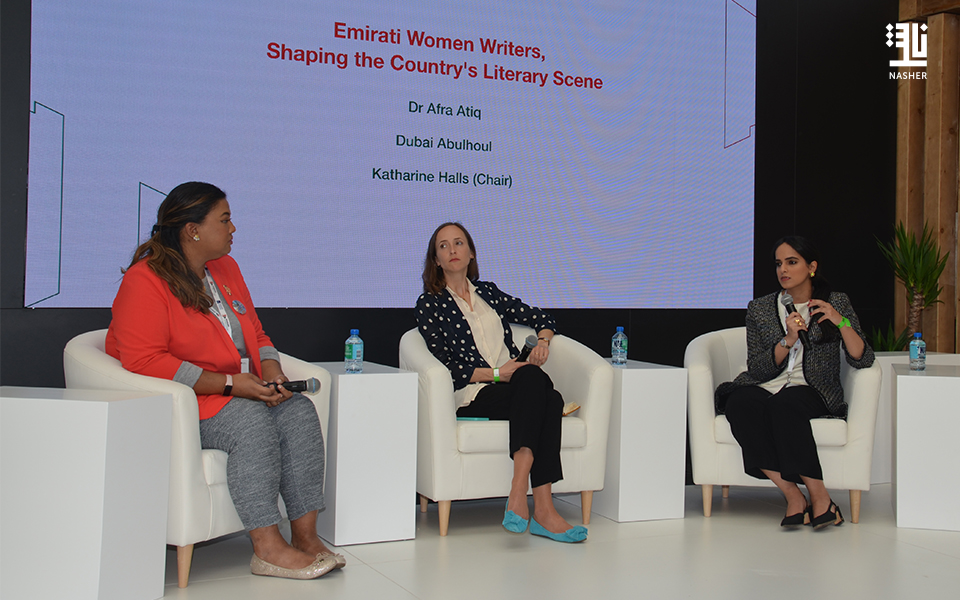Frustration at the absence of an Arabic Harry Potter and the lack of Arab representation in children’s books, was one of the reasons the young Emirati writer Dubai Abhoul began writing, she told delegates at the panel on Emirati Women Writers at the London Book Fair.
“Reading Harry Potter was a real a-ha moment for me,” she said. “I thought to myself ‘why am I not reading about people and places I can relate to? Why can’t I see myself in the characters?’ I was frustrated about the representation of Arab women and men. I wanted to try out an Arabic Harry Potter…”which she did, writing it when she was 12 and eventually getting it published.
She said she grew up with Grimm’s Fairy Tales but began to think “where are our own fairy tales? They seemed to be only published by the academic world. And we do have our own fairy tales, it’s just that it’s essentially an oral tradition. I was worried about these stories being lost forever. So I began sitting with grandmothers and writing down the stories that they remembered.”
The result is her own series of fairy tales and the delight in seeing one translated into Italian and on display at the recent Bologna Children’s Book Fair. “I love the idea of these folk tales appealing to children in Italy.”
Both Abhoul and Atiq have an awareness of how culture is preserved by language, and the responsibility that puts on the shoulders of writers. Atiq recited part of a moving poem about her late grandfather, “a pearl fisherman who learned to read at the age of 50, but could read the skies…”
They both said that creative writing by women is growing in the United Arab Emirates, thanks in part to a creative economy strategy in Sharjah and the support for books and literacy shown by the emirate’s Rulers, His Highness Dr Sheikh Sultan bin Mohamad al Qasimi.
Abhoul writes in English, but rejected the idea that Arabic writing will disappear. “I don’t think that will happen,” she said, “but equally people must accept how things evolve and how things can become more nuanced”.







